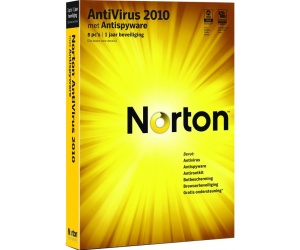
World of Warcraft fans using Norton Anti-Virus had a nasty surprise last week: a false positive which broke the game.
World of Warcraft might be an addictive time-sink, but would you class it as malware? If you work for Symantec, the answer might be yes - albeit unintentionally.
As reported over on Computeractive, the security software vendor responsible for Norton Anti-Virus admitted late last week that a bad definition update had been sent out which caused files required by the overwhelmingly popular World of Warcraft massively multiplayer online role-playing game to be detected as malware - and quarantined or deleted accordingly, making the game unplayable.
Blaming "a human analyst" who "made a mistake, [looking at the files] in isolation," Symantec was alerted to the issue on its product forums - and quickly repaired the update, pushing out a fixed version which removed the false positive.
Interestingly, product manager Kevin Haley used a statement to press regarding the issue to admit what users of signature-based anti-virus packages have long known: false positives are extremely common, with Norton Anti-Virus suffering between "ten to forty" such events every single month, but as the majority of them affect rare or unpopular software users are not often inconvenienced. Nevertheless, the company is said to review every single case of false positives "at a vice-presidential level."
Haley was quick to point fingers at his company's competitors, claiming that while the WoW gaffe was embarrassing it paled into insignificance compared to rival McAfee's recent blunder which saw the important Windows system file svchost.exe detected as a virus and quarantined - leaving users' PCs in an unbootable state.
While losing the ability to play a game may only seem like a complete disaster if you're totally addicted, it's still an embarrassment for Symantec - and yet another mark against the approach taken by traditional signature-based anti-virus packages.
Do you believe that the entire anti-virus industry needs a massive overhaul? Should companies be looking towards alternative technologies in order to avoid the harm caused by false positives? Share your thoughts over in the forums.
As reported over on Computeractive, the security software vendor responsible for Norton Anti-Virus admitted late last week that a bad definition update had been sent out which caused files required by the overwhelmingly popular World of Warcraft massively multiplayer online role-playing game to be detected as malware - and quarantined or deleted accordingly, making the game unplayable.
Blaming "a human analyst" who "made a mistake, [looking at the files] in isolation," Symantec was alerted to the issue on its product forums - and quickly repaired the update, pushing out a fixed version which removed the false positive.
Interestingly, product manager Kevin Haley used a statement to press regarding the issue to admit what users of signature-based anti-virus packages have long known: false positives are extremely common, with Norton Anti-Virus suffering between "ten to forty" such events every single month, but as the majority of them affect rare or unpopular software users are not often inconvenienced. Nevertheless, the company is said to review every single case of false positives "at a vice-presidential level."
Haley was quick to point fingers at his company's competitors, claiming that while the WoW gaffe was embarrassing it paled into insignificance compared to rival McAfee's recent blunder which saw the important Windows system file svchost.exe detected as a virus and quarantined - leaving users' PCs in an unbootable state.
While losing the ability to play a game may only seem like a complete disaster if you're totally addicted, it's still an embarrassment for Symantec - and yet another mark against the approach taken by traditional signature-based anti-virus packages.
Do you believe that the entire anti-virus industry needs a massive overhaul? Should companies be looking towards alternative technologies in order to avoid the harm caused by false positives? Share your thoughts over in the forums.
See Also :
WOW Server Status
World of Warcraft's Remote Auction House enters beta
Symantec Finds 44 Million Stolen Gaming Credentials

No comments:
Post a Comment